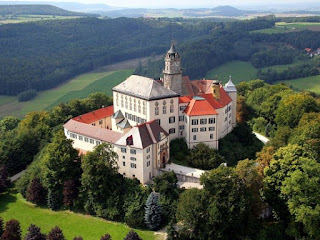Cairns, Megalithic Mounds, and Mithraeums of Swabia
by Sean Jobst 15 October 2018 One of my interests are megalithic sites, as I've always felt instinctively that the "official" timeline is used to mask something much older while suppressing knowledge that the ancients were far more advanced than we give them credit for. Perhaps this interest was first awakened growing up near a Native American mound in the Southeast USA, involved in preservation efforts that were a jumping off point into an interest in other mounds throughout the region. Fast forward nearly a decade later, and now that I've awoken deeper to my own heritage my interest in the various megalithic sites abounding throughout Europe has deepened along with it - almost like a synchronicity making my earlier interests more relevant to my spiritual/psychological growth. And imagine my surprise when recently I discovered that these sites likewise exist in Swabia. In this article, I examine three such sites along with the videos that enlightened me to thei...

